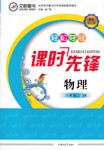��Ŀ����
���������ǹ���ѧ��������μ�����Ϊ��Let's Ride Bicycles����Ӣ���ݽ���������дһ���ݽ��壬��Ҫ���ݰ�����
1��Ŀǰ���������Ŀ�����Ⱦ�ͽ�ͨ���������⣻
2�������г����洦������ܻ��������������ȡ�
�ο��ʻ㣺��̼���� lowcarbon life�� ���� energy saving
ע�⣺1. ������100�����ң�
2���ݽ��忪ͷ�ͽ�β�Ѹ������Ҹò��ֲ������ܴ�����
Good morning, everyone,
I am Li Hua from Xingguang Middle School. The topic of my speech is ��Let's Ride Bicycles����
____________________________________________________________________________________________
____________________________________________________________________________________________
____________________________________________________________________________________________
____________________________________________________________________________________________
____________________________________________________________________________________________
____________________________________________________________________________________________
____________________________________________________________________________________________
____________________________________________________________________________________________
______________________________________________________________________
Thank you !
 �ľ�ͼ���ʱ�ȷ�ϵ�д�
�ľ�ͼ���ʱ�ȷ�ϵ�д�

 B.
B. 
 D.
D. 